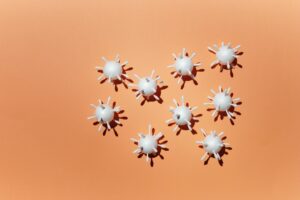Don’t Let ED Ruin Things: Get Help Now

Are you facing a challenge that’s quietly affecting your confidence and relationships? Erectile dysfunction (ED) affects millions of men. Yet, many keep it hidden due to shame and not understanding mental health and depression treatment.
Erectile dysfunction is more than a physical problem. It can hurt your emotional health, self-worth, and close relationships. The bright side? ED is treatable and doesn’t have to control your life or relationships.
Understanding the causes and getting professional help can change everything. Whether it’s stress, medical issues, or mental factors, ED is common. It needs caring and all-around treatment.
Key Takeaways
- ED is a common and treatable medical condition
- Professional help can significantly improve quality of life
- Mental health plays a crucial role in sexual wellness
- Open communication is essential for addressing ED
- Multiple treatment options are available
Understanding Erectile Dysfunction: Breaking the Stigma
Erectile dysfunction (ED) is a health issue that affects millions of men worldwide. Many men feel embarrassed or isolated. But understanding the condition is the first step toward healing.
ED is not just a sign of aging or personal failure. It’s a complex medical condition with many causes. These causes include physical health issues and psychological challenges. Men of all ages can face erectile difficulties, proving it’s not just for older men.
Debunking Common Myths
Popular myths about ED can stop men from seeking help. Some think ED shows weakness or a lack of masculinity. But medical experts say ED is treatable and influenced by health factors.
Psychological and Physical Dimensions
ED’s impact goes beyond physical symptoms. Men often feel less confident and anxious. Self-care techniques can help manage these feelings, improving mental health.
Who Experiences ED?
ED can affect men of all ages and backgrounds. Young men, middle-aged individuals, and seniors may face erectile challenges. Knowing this helps reduce stigma and encourages talking about sexual health.
Remember: ED is a medical condition, not a personal failure. Professional help and supportive approaches can make a big difference.
Early Warning Signs and Symptoms of ED
Spotting the early signs of erectile dysfunction is key to taking care of your sexual health. Small changes in how you perform sexually might show there’s a problem. Using mindfulness can help you understand and handle these signs.
Men might see their erections aren’t as firm or hard to keep up during sex. Feeling less sexual desire or having erections without wanting to can be signs too. These feelings can really stress you out, making therapy a good way to deal with the emotional side.
“Early detection is key to managing erectile dysfunction effectively and maintaining overall sexual wellness.”
Physical signs might include:
- Inconsistent erection quality
- Reduced morning erections
- Decreased libido
- Anxiety during sexual encounters
Even if you notice these signs, it doesn’t mean you’ll have erectile dysfunction forever. Seeing a doctor can help figure out what’s going on and what to do next. Mindfulness and therapy are great for handling both the physical and emotional sides of sex.
Remember, talking openly with your partner and doctor is crucial when dealing with these sensitive health issues.
Medical Causes Behind Erectile Dysfunction
Erectile dysfunction (ED) is more than just a bedroom issue. It’s a complex medical condition with many causes that affect a man’s health. Knowing these causes is key to finding the right treatment.
People with ED often find comfort in support groups. There, they can share their stories and learn about possible medical reasons. Doctors know that ED can come from many health issues that mess with how our bodies work.
Cardiovascular Connections
Blood flow is essential for erections. Heart diseases like atherosclerosis, high blood pressure, and cholesterol issues can block blood flow. These problems damage blood vessels, making it hard for enough blood to get to the genitals during arousal.
Hormonal Imbalances
Testosterone levels greatly affect sexual performance. Low testosterone can cause low libido and erectile problems. Issues like thyroid disorders, diabetes, and aging can lead to these imbalances.
Medication Side Effects
Some medicines, especially antidepressants, can cause ED as a side effect. SSRIs can affect sexual function. It’s important not to stop taking medication without talking to a doctor.
Seeing medical professionals and joining support groups can help people deal with these complex causes. They can find the right treatment options.
Don’t Let ED Ruin Things: Get Help Now
Dealing with depression linked to erectile dysfunction can be tough. Many men feel like they’re alone in this fight. But, seeking help is a big step towards better mental health and confidence.
Experts in mental health get how tough it is with ED. They offer support to manage stress, anxiety, and relationship issues. Breaking the silence is your first real victory.
Remember: ED is a medical condition, not a personal failure.
Getting help can change your life. Therapists teach you how to cope, improve relationships, and boost your self-esteem. With the right support, you can turn frustration into strength.
It’s not just about physical fixes. Learning about the mental side of ED helps you grow stronger. Counseling, support groups, and therapy are key in your recovery.
Start by talking to a healthcare provider. They can help you find the right treatment. Your mental health and happiness are worth the fight.
Treatment Options and Modern Solutions
Erectile dysfunction (ED) is a tough challenge for many men. But, there are many effective ways to treat it. Knowing these options can help people manage their sexual health better.
Modern medicine offers many ways to fight ED. This includes medicines and changes in lifestyle. Treating depression is also key, showing the need for a full care plan.
Prescription Medications
Medicines like Sildenafil (Viagra), Tadalafil (Cialis), and Vardenafil (Levitra) help with ED. They improve blood flow, making erections more reliable. It’s important to talk to a doctor to find the best one.
Alternative Therapies
Other treatments include acupuncture, herbal supplements, and vacuum devices. It’s important to do research and get advice from experts to make sure they are safe and work well.
Lifestyle Modifications
Making lifestyle changes can also help with ED. This includes regular exercise, eating well, reducing stress, and drinking less alcohol. These steps help improve sexual health and give people control over their condition.
Addressing erectile dysfunction requires a multifaceted approach that combines medical intervention, emotional support, and personal commitment to health.
Discussing ED with Your Healthcare Provider

Talking about erectile dysfunction can feel tough. But, healthcare providers are trained to handle these talks with care and knowledge. Getting ready for your appointment can make you feel more at ease and help you get the most from your visit.
Before you go, collect key info about your health, meds, and symptoms. Write down any questions about treatments you’d like to ask. It’s also good to talk about your lifestyle, stress, and health habits.
Remember: Your healthcare provider’s goal is to help you, not judge you.
Be open and honest during your visit. Share your health history, meds, and worries. Your doctor might suggest different treatments, like meds, lifestyle changes, or counseling.
Important things to talk about include:
- Detailed medical history
- Current medications
- Potential therapy options
- Recommended self-care techniques
- Potential diagnostic tests
Don’t let embarrassment stop you from getting help. Talking openly about erectile dysfunction can lead to effective treatment and a better life.
Supporting Your Partner Through ED
Erectile dysfunction (ED) can be tough for both partners. It needs patience, understanding, and teamwork. Couples facing ED often grow closer and build stronger bonds.
Open Communication Pathways
It’s key to have safe spaces for honest talks. Mindfulness helps partners talk openly without fear. Listen well and share feelings without blaming.
Both should feel free to share their feelings and worries.
Nurturing Emotional Intimacy
ED doesn’t mean a relationship lacks intimacy. Emotional closeness is more than just physical touch. Find new ways to connect through activities, affection, and support.
Cognitive behavioral therapy can help manage stress and improve your relationship.
Professional Support Options
Couples therapy can guide you through ED. A therapist can teach better communication, boost confidence, and offer support. These sessions help keep emotional bonds strong during treatments.
Remember, erectile dysfunction is a medical condition, not a reflection of personal worth or relationship quality.
Lifestyle Changes That Can Improve ED

Managing erectile dysfunction is not just about medicine. Making lifestyle changes can greatly improve your sexual health. Simple daily habits can make a big difference in fighting ED.
Regular exercise is key in fighting erectile dysfunction. Activities like walking, swimming, and cycling boost blood flow. Strength training also raises testosterone levels, helping with sexual performance.
Your diet affects your sexual health too. Eating a balanced diet with fruits, veggies, whole grains, and lean proteins is good for your blood vessels. Avoiding processed foods and keeping a healthy weight can also help with erectile function.
Stress management is important for ED. Techniques like meditation, yoga, and deep breathing can help. Mental health support is crucial, and support groups offer emotional help.
Some antidepressants can affect your sex life. Talking to your doctor about changing medications or finding new treatments can help. This way, you can manage your mental health and sex life better.
Small lifestyle changes can create significant improvements in sexual health and confidence.
Drinking less and quitting smoking are also good for your sex life. These habits improve blood flow and heart health. Both are key for sexual wellness.
Conclusion
Erectile dysfunction is more than a physical issue. It also affects mental health and overall well-being. To deal with depression linked to ED, we need to tackle both physical and mental sides of sexual health.
Knowing that ED is common helps break the stigma. It encourages people to seek help. Doctors offer many treatments, from medicines to lifestyle changes. The important thing is to be open and proactive.
Talking openly is key in managing ED. Whether it’s with a doctor or a partner, being honest helps find solutions. Adding mental health support to medical treatment can lead to a full recovery and better relationships.
Remember, ED can be treated. By taking positive steps and staying open, you can regain confidence. Your journey to better sexual wellness is unique, and help is always available to guide you.
FAQ
What is erectile dysfunction (ED)?
Erectile dysfunction is when a man has trouble getting or keeping an erection for sex. It’s common and can happen to men of any age. Many things can cause it, like health issues, stress, or lifestyle choices.
How common is erectile dysfunction?
ED is more common than people think. About 30 million men in the U.S. deal with it. It gets more common with age, but it’s not a must-have part of getting older. Most cases can be treated.
What are the primary causes of erectile dysfunction?
Many things can cause ED. This includes heart problems, hormone issues, diabetes, and nerve disorders. Stress, anxiety, depression, certain meds, and lifestyle choices like smoking also play a role. Sometimes, it’s a sign of a bigger health issue.
When should I see a healthcare provider about ED?
See a doctor if you have ongoing trouble with erections. If it’s stressing your relationship or you’re worried about your health, talk to a doctor. Early help can find and fix the cause.
What treatment options are available for erectile dysfunction?
There are many ways to treat ED. You can try meds like Viagra, change your lifestyle, or see a counselor. Hormone therapy, vacuum devices, and surgery are options, too. The best choice depends on your health and what’s causing the ED.
Can lifestyle changes help improve erectile function?
Yes, they can! Exercise, eating right, managing stress, sleeping well, quitting smoking, and drinking less can help. These changes can improve your health and might fix mild to moderate ED.
How can I discuss ED with my partner?
Talk openly and kindly. Pick a good time, share your feelings without blaming, and say you’re working on it. Focus on supporting each other, not just fixing the problem.
Are there psychological treatments for erectile dysfunction?
Yes, there are. Therapy like CBT, sex therapy, and couples counseling can really help. They’re great for ED linked to stress, anxiety, depression, or relationship problems. These therapies tackle the mental side of ED.
Is erectile dysfunction a sign of serious health problems?
ED can be a sign of bigger health issues like heart disease, diabetes, or hormone problems. Seeing it as a health warning, not just a sex issue, is important.
Can younger men experience erectile dysfunction?
Yes, younger men can have ED, too. It’s not just for older men. Younger men might face ED due to stress, anxiety, pressure, lifestyle, mental health, or health problems. Age isn’t the only factor in ED.




